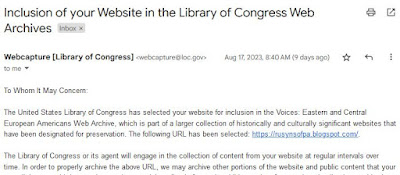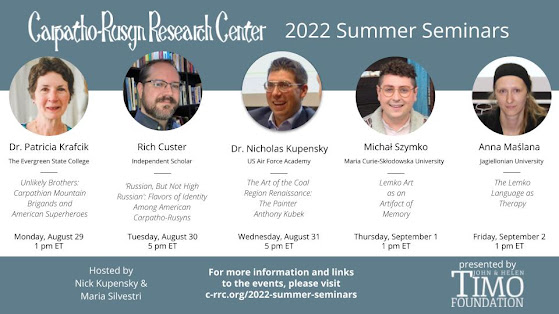On this New Year’s Eve, it’s a traditional time for reflection and resolution.
My primary reflection is that 2023 wasn’t really what I thought it would be. Overall that’s okay, because some unexpected opportunities arose and made for a more than worthwhile alternative use of my time (not to mention some helpful additions to my CV).
So what were the major events of the year?
May: I spent a day at the University of Pittsburgh’s Archives Service Center for one last session gathering information from membership applications and death claims of the United Russian Orthodox Brotherhood of America (UROBA). (past post on this resource and archive)
September: Through the good words of an old friend vouching for me, I was able to do long-anticipated research in the Saints Cyril & Methodius Ukrainian Catholic Church in Berwick (Columbia County), which as I suspected, had a fair number of Carpatho-Rusyn parishioners despite the thoroughly Carpatho-Rusyn community around the corner at Holy Annunciation Russian (originally "Ugro-Russian"/Uhro-Rusyn) Orthodox Church. And related, via the help of Ss. Cyril & Methodius’s pastor, I did a survey of any available materials at St. Nicholas Ukrainian Catholic Church in Glen Lyon (Luzerne County) and took some much-improved photos inside the church.
October: I successfully completed 7 days in the Pennsylvania State Archives Scholar-in-Residence program. Most of the time I focused on gathering naturalization documents from microfilmed records of various counties. (blog post on some of my findings) This will result in an article sometime in 2024, exact topic TBD, in the Pennsylvania History journal.
November: I attended the 2023 Assembly of the Byzantine (Ruthenian) Metropolitan Church, at St. Mary's Church in Hillsborough, New Jersey, at which there were a lot of thought-provoking and encouraging presentations. I hadn't been to any church-wide events (other than pilgrimages) in many years, and so I was able to reconnect with many old friends and others who have been very helpful to me in the past.
Here also after a number of years of correspondence, I finally met Father Christopher Zugger in person. Fr. Chris is the leading historian of the Byzantine Ruthenian Catholic Church in Europe and the United States, who after 10 years of work just published his latest book, Looking to Tomorrow: The History and Mission of the Byzantine Catholic Church. I was excited to buy this two-volume resource during the assembly, and to hear Fr. Chris give a presentation somehow summarizing much of the work in just 45 minutes. The talk is available on YouTube, and the two-volume set is available from Byzantine Seminary Press – both highly recommended.




